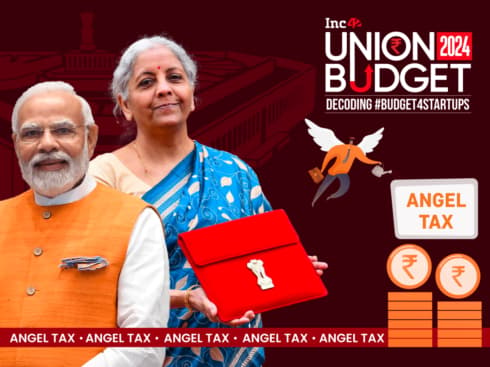
The bootcamps claim the risk is high, so the reward should be proportionate
Everything has a cost attached to it and somebody has to pay for it
Private ISA lenders skim the ‘cream of students’ off the top
If you are someone who has been exploring coding bootcamps in India recently or someone who is wanting to learn to code, then you might have heard about this new “method of payment” called Income Sharing Agreement. If you haven’t, then let me introduce you to it.
An Income Share Agreement (ISA) is a monetary arrangement which provides for a service to an individual, on a condition that they agree to pay back a percentage of their income for a fixed period of time — which could be months or even years.
In the context of a coding bootcamp, when a coding bootcamp accepts and enrolls a student for ISA it implies that the school is confident that he/she will graduate with an excellent record and get placed with an impressive stipend/salary. Which means bootcamps take their assessment very seriously before they sign an ISA with a student. And that’s the first problem. Their enrollment evaluation and entry-level recruitment are like two peas in a pod.
The students who clear the assessment could also very easily get an entry-level/freshers job, where their training will be paid for. And they won’t be paying chunks of their salary to anyone for many many months. On the other hand, paid coding bootcamps have their own filters and entry mechanisms, focussing on how to help the majority and get them started.
Now, let’s try to understand why ISA has become so popular and is widely being accepted. ISA may not seem like the noblest thing but, credit where credit’s due, it makes bootcamps work towards quality training. Bootcamps in-turn become accountable to themselves when it comes to job placements of their bootcampers. They make sure that their students learn and perform par excellence in their chosen course.
Another obvious perk is that, for broke college students, “ISA saves the day!” keeps ringing in their ears. It seems to be the perfect solution for them and incredibly better than student loans as there is 0% interest (seemingly) and they only expect you to pay back when you’ve landed a job. Sounds too good to be true, isn’t it?
Let’s hear out a fun fact, you may end up paying more in ISA when compared to federal loans or even private student loans!
That’s because when you dig deeper, you’ll find a myriad of questions that need to be answered before you sign up for an ISA. These clauses that are in the agreement are not your friends, they may seem reasonable to begin with but as you graduate in your career, you’ll realize that you’re giving away an unfair chunk of your hard-earned salary. No matter promotions, incentives or bonuses, you’ll still be paying the same percentage of your income for years to come.
“Debt is not good.
Prolonged debt is bad.
Indefinite debt is a nightmare.”
Where Is The Skin In The Game?
While we continue to blame the education system, let’s take a step back and think about what exactly is the problem. Yes – the traditional methods, outdated curriculum, zero focus on industry relevance and so on and so forth. But, to be fair, we do see a lot of great talent joining our industry every year, who continue to make us proud.
How and where do they come from? These are self-motivated, determined and hardworking students who figure out their way with little or no help. They put in their blood, sweat, tears and go the extra mile to get there.
And when you look at this vis a vis with the rest of the majority – that needs relatively lots of help, you’ll see that like the fortune only favours the brave, similarly, opportunities do not help the uninitiated.
We have seen State Governments in India doling out scholarships. And we also see the quality of outcomes of these “paid for” engineers. The accountability and responsibility have gone for a toss. The minimal “proof of commitment” that a student can demonstrate is by paying a fee.
While I am totally for the concept of supporting the deserving, economically weak student segment, the whole concept of putting the pressure on the school/institution/bootcamp takes the problem to a new level, where students feel entitled to “free stuff”.
What happens when an army of not so committed students flood the gates of the bootcamp, and then decide to leave when they “don’t feel like it?”.
At a paid coding bootcamp, ideally, a graduate bootcamper finds a job in less than 60 days, obviously if he is good. And conservatively, 50% of the graduates find the job, if not 80% or 100% that they have been looking for. And this actually gets them their investment (RoI) back in 4 months, max. Now compare this with an ISA based coding bootcamp – where you pay for upto 3 years after you find a job! The cost is unreasonably, exponentially high. Time value of money? Nobody talks about it.
Now in the defence, the bootcamps claim the risk is high, so the reward should be proportionate. But in Indian context, where the majority of the population is waiting to get skilled and get a decent job, can we afford it? Maybe. Maybe not.
ISA started first in the West. And, like our other pretty popular startup ideas that are “inspired from the West” business models, this one was copy-pasted for India. Without taking into account that the compliances and regulations in India and the West are poles apart.
We do not have a way to track what a guy earns (and I personally like it that way!) but that puts the bootcamps in a spot – what if one fine day, the student decides to jump the boat and stop paying? We do not have a way to track. And get the investment back.
Now, there are ISA providers who have set up big finance teams to track and collect their “EMI’s” back. But I think that will make them a finance company, and not a coding bootcamp. The focus is shifted towards payment collections, and rightly so. My assertion? Lets focus on becoming better coding bootcamps, and not better finance companies.
Who Is Paying For It?
Let’s be realistic, everything has a cost attached to it and somebody has to pay for it. And who better than VCs, right? Please don’t take me wrong – VCs are obviously one of the most important cogs in the startup ecosystem machinery. And rightly so.
But they are just that – cogs. VCs are critical to not just to the startup ecosystem, but also to the whole “Lets do it” culture. Nobody has done things like VCs do to drive innovation and research. And they have been rightly rewarded.
From a capitalist’s perspective, the government has a weakness: It treats all borrowers the same. Borrowers face similar rates of interests whether they are mediocre students or academic pundits studying computing at a top-notch university.
But private ISA lenders skim the ‘cream of students’ off the top. All these ISA bootcamps place them as, “Pay only when you earn.” While some may see this as a feature or at least a given with ISAs, it’s more of a bug. Tbh, It’s hard to think up a better advertisement for free-market capitalism.
Subprime Mortgages are making a scary comeback in the name of ISA’s/ ISA’s are nothing but carbon copies of the subprime mortgage loans but even scarier since it’s hitting the most vulnerable sect i.e students. Although it’s being flaunted as an affordable, smart alternative to student loans, if you have to “borrow” money from anyone, by definition, you’re in debt and that’s a loan.
No matter how you do the math, the amount you’ll be paying overtime is guaranteed to increase. Charging more is not the solution to the loan problem. This concept will do more bad than good.
Once the high-accomplishing poor and the working-class students have been captured by these flawed models, the default rate for loans began to ascend and so do the interest rates attached to it. You’ll be viewed as a stock or bond, no more, no less. Cynical perhaps, but wake up and smell the coffee.
ISAs are presupposed on the idea of discriminating among individuals and the VC’s are heavily funding these vicious schemes. Mortgaging your future by giving equity in yourselves away to VC’s (Vulture Capitalists) is beyond reproach. It’s vital to set aside the hype and look at ISAs for what they really are: Indentured Servitude Agreements. Honestly, I’m worried about the students.
The crux of the matter is that charging an already employable student, enabling a taken-for-granted attitude in them and subjecting them to prolonged debt for years to come is a bad choice from all angles. And these are inherently the salient features of ISA. The choice is yours to make. It is more than common to have financial constraints coming in the way of your pursuit of passion.
Same is the case when it comes to enrolling into that perfect coding bootcamp that you found for yourself. And there are payment alternatives like applying for sponsorship or even deferred tuition, but ISA is a whole different ball game. Know what you’re getting yourself into before it’s too late.
Effectively this is a debt for “life” equity swap and It’ll not be a very fun bubble when it pops.































 Ad-lite browsing experience
Ad-lite browsing experience